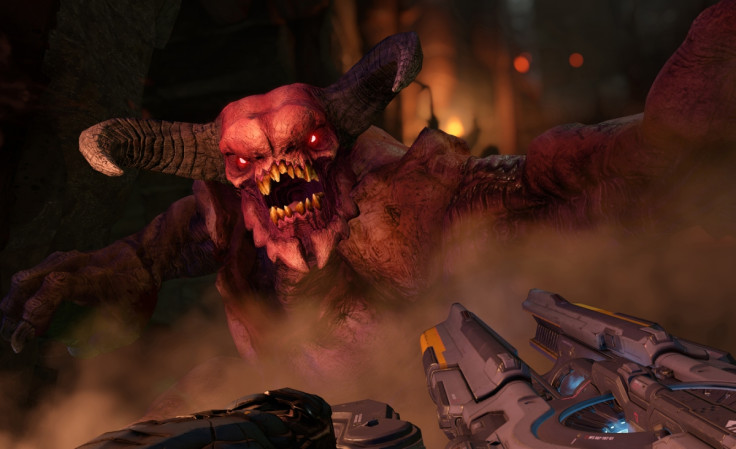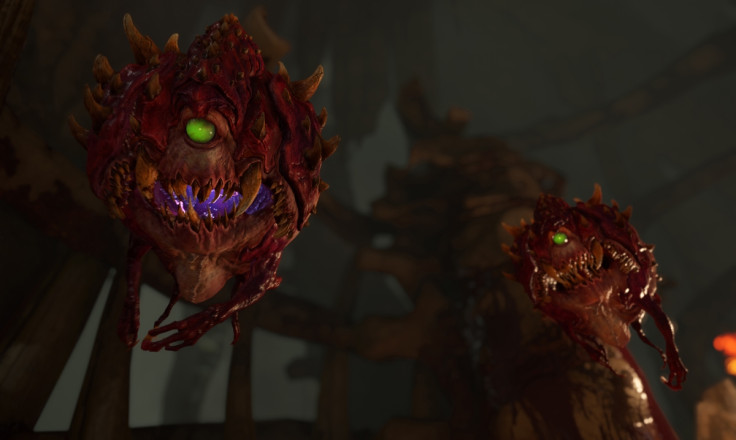Doom: Infamous 'talk to the monsters' review was on the right side of history

"If only you could talk to these creatures, then perhaps you could try and make friends with them, form alliances... Now that would be interesting." So concluded Edge magazine's now infamous review of the original Doom, way back in 1994. I say infamous, because over twenty years later, "If only you could talk to the creatures" remains one of gaming's favourite running jokes.
Rock, Paper, Shotgun created a parody Agony Aunt column called "Talk to the Monsters." An intrepid Doom fan programmed this "talking monsters mod". You can even buy a t-shirt. From a presentation given at VideoBrains, to a listing on TV Tropes, the "talk to the creatures" review is still roundly mocked.
Why? Because gaming culture, as it was in 1994, is still dominated by snideness and cynicism. The wording might have been a little moist-eyed, but Edge's Doom review – above so much discussion about gaming, my own included – was open-minded. In an industry so fixated upon genre and the power of snappy, comprehensible pitches, where even independent games now fall under the presumptive rubric of "indie" – posing what might have seem like absurd questions or suggestions strikes me as important work.
How limited is our memory, how grotesquely out of proportion is our attachment to cheap and easy snark, that we can't see that old Doom review for what it was? It was searching. It was prescient. It presupposed games way beyond its years, games like Skyrim, Mass Effect and Undertale wherein the player can indeed talk to the creatures, can indeed form alliances.
With the advent of branching stories and dialogue trees, that Doom review becomes a rare example of game criticism before its time. Suggesting today that a game might be more interesting if it offers more choice, more communication with non-player characters and more freedom is perfectly acceptable. If we laughed at Edge back in 1994, because the idea of negotiating with a video games' enemies seemed absurd, I don't understand why we're still laughing today. I disagree that this review missed the point of Doom; to me, it seems like Edge recognised Doom as a gaming landmark and was speculating upon what might be (and, as it came to pass, actually was) a future gaming landmark.
I'm eager, however, not to resort (at least any further) into navel-gazing. Instead of game criticism specifically, the enduring mockery of Edge's Doom review says something disquieting about gaming culture generally: it's safe, it's self-censoring and it's trapped inside dozens of ill-defined boundaries. When I see the reaction on Steam to a game like That Dragon, Cancer, or when I read the bile spat on a daily basis at women or femininity of any kind in the gaming industry, I see a culture not only failing but actively resisting sophistication.

Games are struggling to change because – above merely voting with their wallets – the audience for games is dedicated to keeping things the same. Similarly, we mock Edge's review because it was speculative. Like the residents of Salem, we denigrate and label as outcast whatever does not fit, whatever doesn't adhere to long-standing and outmoded ideas of what video games ought to be.
Of course, we have a burgeoning crop of experimental independent games – we have drawn a fence around that area of the industry, and decided it's a fair, if rarely profitable place, to try new things. But big budget gaming - which if big budget movies and TV have demonstrated anything, has every ability and right to be as challenging as the independent scene – remains helplessly shackled by expected standards. Standards of technical proficiency. Standards of size and "content." Standards of sexuality, gender and race representation. It's not as overt as hurling abuse via Twitter, but mocking that Edge review, and the attitude that mockery betokens, subtly keeps big gaming going in circles.
The new Doom has guns, blood, lots of nicely designed action, and I'm looking forward to playing it. But 22 years later, with first-person shooters particularly emblematic of gaming's stagnancy, I have to wonder: what would it be like if you could talk to the creatures?
For all the latest video game news follow us on Twitter @IBTGamesUK.
© Copyright IBTimes 2025. All rights reserved.





















